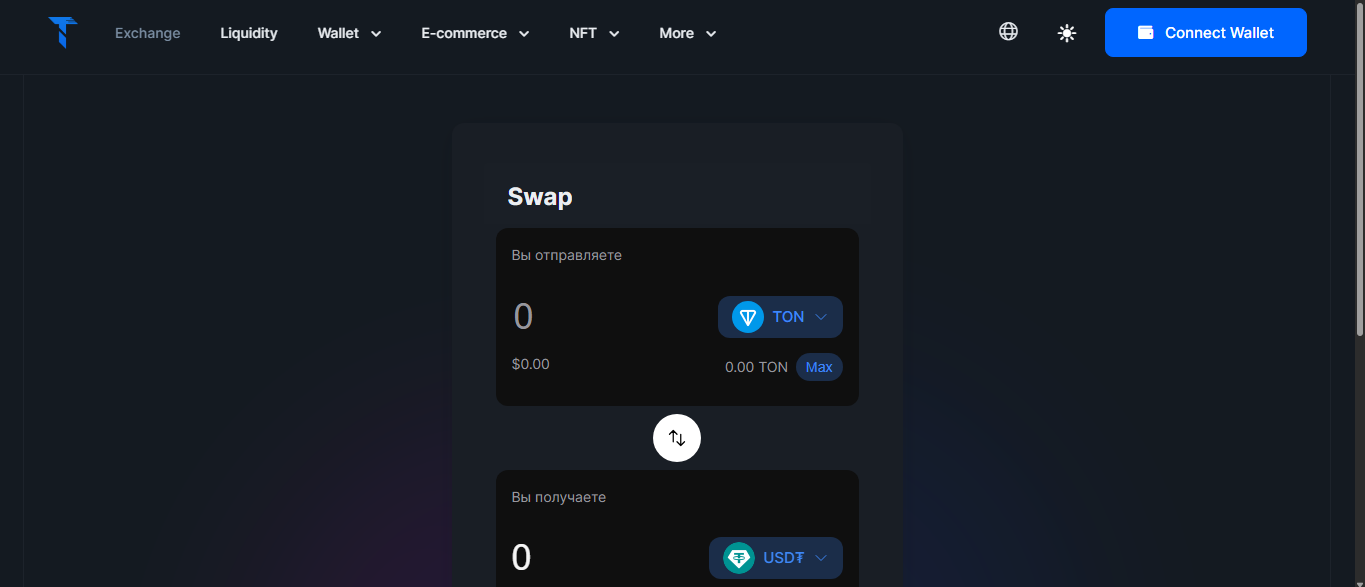Tegro Finance Overview

Tegro Finance is a Gen‑2 decentralized exchange (DEX) and NFT20 marketplace that enables order‑book-style trading of NFTs and tokens across various EVM-compatible networks. Featuring bulk NFT trading, zero swap fees, and lightning-fast execution, it seeks to bridge centralized exchange precision with DeFi transparency.
Trading Volume & Liquidity
Daily trading volume is currently untracked on central aggregators, signaling very low on‑chain activity. However, early user data suggests modest NFT and token interactions through its order‑book setup. TVL on the Mantle-based version is approximately $13,300 - indicative of niche usage but growing interest.
Supported Tokens & Market Access
Tegro supports fungible representations of NFTs (NFT20 tokens) across Ethereum, Polygon, Arbitrum, BNB Chain, Avalanche, Optimism, and other blockchains. Users can trade both NFTs and their tokenized equivalents on an on‑chain order‑book. Token depth remains limited, but the range spans many projects using this model.
Fees & Monetization
Trading on Tegro is gasless in terms of swap charges, relying on an order‑book model that eliminates swap fees entirely. Users pay only network fees, and early reports show they are minimal. Revenue mechanisms appear early-stage and centered on NFT20 pair spreads.
Fiat Support & On‑Ramp
Tegro currently offers no fiat on‑ramp or support. It is fully DeFi-native, requiring users to bring tokens via external wallets before interacting with markets.
Security & Regulation
As a decentralized protocol, Tegro relies on audited smart contracts and on-chain transparency. There's no centralized control or KYC. Regulatory oversight is absent, but its open order-book design allows for full public verification.
User Interface & Experience
The interface recreates centralized style trading with order-book depth charts and fast execution. Wallet connection is seamless, allowing cross-chain trades with no sign-up. Users report it feels familiar to CEX platforms, but with Web3 benefits.
Pros and Cons
Pros
- NFT20 bulk trading with centralized-style order-book and zero swap fees
- Cross-chain availability (Ethereum, Polygon, Arbitrum, BNB Chain, Avalanche, Optimism)
- Order-book UX lowers DeFi complexity for NFT users
- Security via non-custodial wallet use and transparent execution
Limitations
- Very low liquidity and trading volume
- Minimal token/NFT pair depth
- No fiat support – must supply funds via wallet
- No centralized support or institutional infrastructure
Who Is It For?
Tegro is ideal for:
- NFT traders seeking centralized-style order-book execution within a DEX
- Cross-chain DeFi users who already hold tokens and NFTs
- On-chain traders comfortable self-managing wallet connections
It’s less suitable for traders needing strong liquidity, institutional compliance, or fiat access. Best as a supplemental NFT trading platform.
Quick Comparison Table
Here’s a concise overview:
Conclusion
Tegro Finance offers an innovative hybrid: NFT20 bulk trading via order-book style execution and zero swap fees. Its multi-chain support and CEX-like UX differentiate it in the NFT DEX space. However, its liquidity remains minimal (TVL ~$13K), and it lacks fiat integration or centralized support. This platform suits NFT-savvy users seeking novel trading methods on-chain - if you already have assets and are experimenting with NFT order-book dynamics, Tegro is definitely worth exploring.
Disclaimer
“This content is for informational purposes only and does not constitute financial advice. Please do your own research before investing.”
.png)







%203.svg)
%203.svg)




















